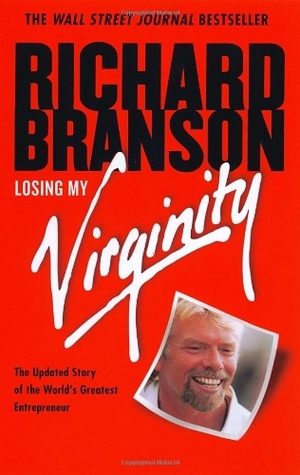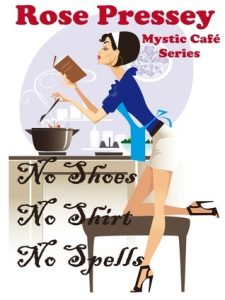Title: Losing My Virginity: How I’ve Survived, Had Fun, and Made a Fortune Doing Business My Way
Author: Richard Branson
First published January 1, 1998
416 pages, Paperback
ISBN: 9780812932294 (ISBN10: 0812932293)
Rating: 3.99
Overview
Richard Branson’s Losing My Virginity is an inspiring autobiography that chronicles the journey of one of the most successful business moguls of our time. Branson’s philosophy of “screw it, let’s do it” has been the driving force behind his countless entrepreneurial ventures, ranging from airlines to music, retail, and financial services.
Branson’s unconventional approach to business has resulted in a track record second to none. In this book, Branson shares his own “rules” for success, including a decentralized management approach and a focus on finding opportunities in underserved markets.
He also shares stories of his personal life, including adventurous hot-air balloon landings and swimming to safety during a violent storm. Losing My Virginity is a testament to Branson’s unorthodox yet effective approach to business and life and is sure to inspire readers to take risks and pursue their dreams.
About the Author
Meet Richard Branson, an English business magnate who has made a name for himself with his Virgin brand, which encompasses over 360 companies. At 16 years old, Branson’s entrepreneurial spirit led him to publish a magazine called Student, which proved to be a success.
He went on to start a record mail-order business in 1970, followed by a chain of record stores called Virgin Records in 1972. This brand later became Virgin Megastores, then rebranded as zavvi in late 2007.
Branson’s bold and competitive style helped him expand the Virgin brand rapidly throughout the 1980s, with the establishment of Virgin Atlantic Airways and the growth of the Virgin Records music label. Today, Branson’s estimated net worth of approximately $7.9 billion USD has earned him a spot as the 236th richest person on the 2008 list of billionaires.
Editoral Review
Richard Branson, the prolific entrepreneur, philanthropist and founder of Virgin Group, published his memoir, Losing My Virginity: How I’ve Survived, Had Fun, and Made a Fortune Doing Business My Way, on January 1, 1998. The book, which falls under the genre of business autobiography, has since become an international bestseller, showcasing Branson’s personal and professional journey, from his humble beginnings as a precocious student to his iconic status as a global force in business.
Branson presents his story in a candid and unpretentious style, with a focus on his personal brand of innovation, risk-taking and out-of-the-box thinking. He contextualizes his growth and success in reference to the social, economic and political upheavals of his time, weaving in anecdotes and observations on a range of topics, from deregulation to environmentalism to music.
The book begins with Branson’s childhood, painting a portrait of a young boy who was always drawn to adventure and daring. From there, it chronicles his early ventures, starting with his first business, which sold Christmas trees, to his establishment of Virgin Records and then onto his airline, train and mobile phone ventures.
He delves into his personal life with equal gusto, discussing his family, his friends and his love of adventure sports. One of the most engaging aspects of the book is the colorful cast of characters that populate Branson’s life.
From rock stars like Mick Jagger and Phil Collins to politicians like Nelson Mandela and Margaret Thatcher, Branson’s tale is woven between the bonds he has created with these intriguing figures over the course of his career. The book’s strength lies in Branson’s ability to inspire readers.
His story portrays how he turned his passions into profitable businesses, often in completely unfashionable industries. He consistently champions the idea of a “can-do” attitude and shares how he discovered success through taking risks and pushing boundaries.
Branson also addresses the role of failure, making a strong case that it’s essential to learn by trying and not being afraid to make mistakes. Despite the book’s strengths, its weaknesses are also notable.
Apart from the sheer length, its organization can also be challenging. The book could benefit from a more structured approach, especially during the chronology of events that lead to his successful ventures.
The sudden shifts between years and the lack of a clear timeline can sometimes leave the reader disoriented. Despite these flaws, Losing My Virginity still packs a punch.
Its evocative storytelling provides insight into the mind of one of the great entrepreneurs of our time. His insights and lessons resonate with entrepreneurs and business professionals alike, as his voice is one of hard-won experience and unapologetic resilience.
Branson’s ability to take many of his own ideas across various industries and realize them for the good of those around him is an inspiration for anyone looking to make a positive impact. In conclusion, Losing My Virginity: How I’ve Survived, Had Fun, and Made a Fortune Doing Business My Way, is recommended for anyone seeking inspiration and guidance in their own entrepreneurial journey.
Branson’s storytelling is undoubtedly captivating, despite the book’s length and occasionally disorganized style. A captivating read, the book depicts a powerful and passionate man who has lived his life on his own terms and reshaped industries in the process.
For this reason, Losing My Virginity earns a solid 4.5 stars out of 5.



